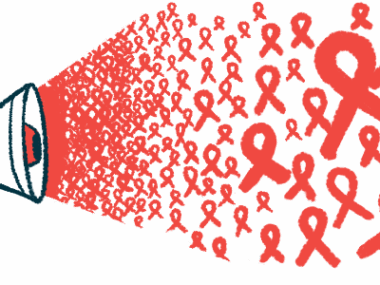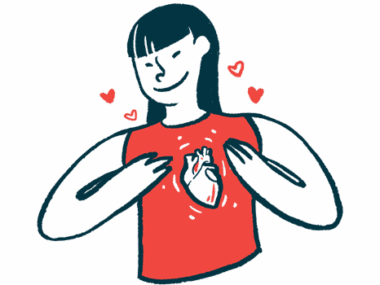Telling our 4-year-old that she has familial ‘tummy trouble’
How our daughter's becoming curious about her symptoms and PFIC
Written by |

I’ve often wondered how and when we’ll tell our daughter Eva that she has progressive familial intrahepatic cholestasis (PFIC), a rare liver disease. Most adults I talk to don’t understand PFIC, much less a 4-year-old!
I don’t want to make the disease sound frightening to her, although if I’m honest, it is a frightening disease.
Recently, I’ve been wearing a jumper that was kindly gifted to me by the PFIC Advocacy and Resource Network. It features the network’s logo and the PFIC acronym. Eva is naturally inquisitive (like her mummy) and asked me what PFIC stands for. I explained to her that it’s something that runs in our family — a problem with our tummies that Mummy and Daddy have, too. I reminded her about when her sister, Rosalie, was in my tummy and I was feeling poorly. “That was PFIC!” I said.
That’s perhaps not strictly true, as I had intrahepatic cholestasis of pregnancy caused by being a PFIC carrier. But one health problem and genetics lesson at a time!
I explained that she has the tummy trouble, too, but sometimes hers is a bit worse than Mummy’s and Daddy’s. It’s why we go to the hospital, so the doctors can check that she’s OK and give her medicines to help her feel better.
In the past month, Eva’s been having daily stomach pains. It’s hard to know if they’re caused by PFIC or are just another part of growing up. We’ve had red herrings before. We thought PFIC was causing her to have significant fatigue, but it was actually enlarged tonsils and sleep apnea.
Eva has a cow’s milk protein allergy, and when temptation strikes, eating dairy can also give her a tummy ache. Kids’ birthday parties and Easter egg hunts seem to be a minefield of tempting chocolate in reach of little hands. Perhaps that’s the cause of her pain? Or is it another food allergy?
We have an answer to ‘why?’
With the progressive nature of PFIC, Eva’s doctors have been keen to run tests to check her liver. When she asks why her tummy is hurting and why she’s having more tests (yes, we’re at the “why?” stage of parenting), it’s been helpful to explain it might be PFIC, the illness on mummy’s jumper.
Perhaps I’m trying to be optimistic and not think too much about the her liver disease progressing, or perhaps it’s PFIC catching up with us. We’re waiting for scan results and Eva’s annual health check here in England at Birmingham Children’s Hospital, which has a specialist liver unit.
Overall, though, our main concern is that she’s well enough to lead a happy life and go to forest school, nursery, and Girl Guides with her friends. I’m trying to stay focused on those positive thoughts.
In time, we’ll tell her more about the disease, but for now I hope we can leave it as a family tummy problem so that she doesn’t feel she’s on her own. It’s funny how these conversations, which I’ve planned many times in my head, come and go in daily chitchat. Somehow that’s the beauty of talking with a child.
Note: Liver Disease News is strictly a news and information website about the disease. It does not provide medical advice, diagnosis, or treatment. This content is not intended to be a substitute for professional medical advice, diagnosis, or treatment. Always seek the advice of your physician or other qualified health provider with any questions you may have regarding a medical condition. Never disregard professional medical advice or delay in seeking it because of something you have read on this website. The opinions expressed in this column are not those of Liver Disease News or its parent company, Bionews, and are intended to spark discussion about issues pertaining to liver disease.





Leave a comment
Fill in the required fields to post. Your email address will not be published.